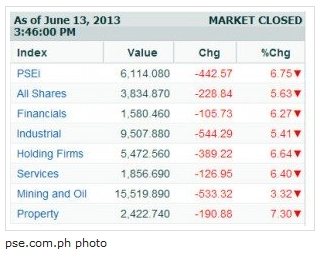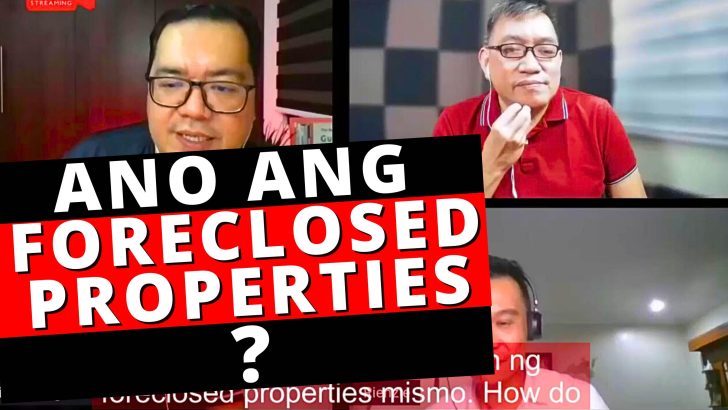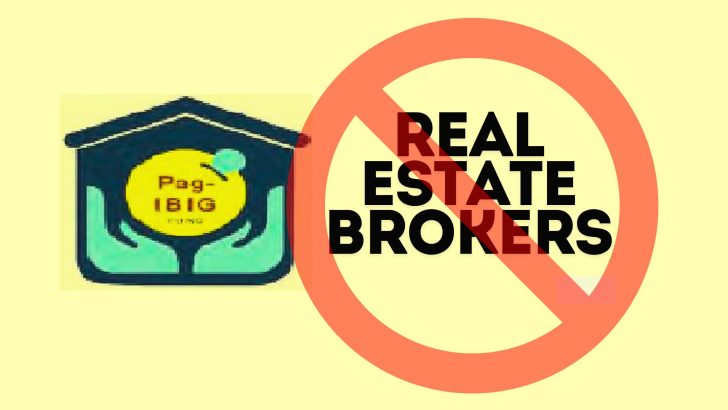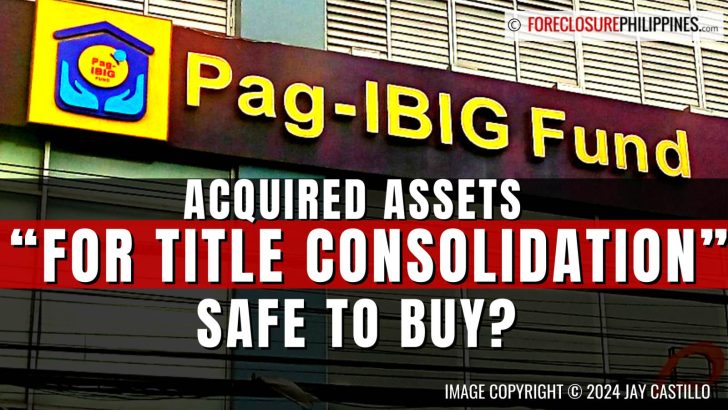This is a guest contribution by Ian Mariano of Reno Home Blog (Author’s Note: This article was written to serve as an on going dialogue about current market tremors. You may post your questions at the comment section and I’ll try to answer them – Ian Mariano).
“You must never confuse faith that you will prevail in the end — which you can never afford to lose — with the discipline to confront the most brutal facts of your current reality, whatever they might be.” – Jim Stockdale
Last Wednesday, about to go home from work, I came across these alarming headlines in some of the leading business newspapers:
~
~
What do these frantic headlines mean for the general Philippine economy? A more pertinent question: How will this affect the average home owner/investor in the Philippines? I strongly believe it’s time to cut losses short or risk getting wiped out by this impending crash. In this article I will try to explain the reasons for this belief.
Sound the Emergency Alarm
In December 2012, I co-wrote a 3000 word open letter to President Benigno Aquino III. My goal for the letter was to“sound the emergency alarm in hopes that the Philippine government can start preparing for this financial catastrophe ASAP”. I wanted to heighten the urgency of “if” the market crashes to “when”.
I also said in the article that the Philippine housing market could crash in 2-4 years, perhaps sooner.
When the alarming headlines hit last week, the climate of opinion of so-called local experts and professional financial analysts, explaining the reasons for the the recent stock market bloodbath were a mixture of:
1) The refusal of Bank of Japan (and possibly, U.S Federal Reserve) to inject more stimulus money to its economy (through its bond buying program)
2) Foreign investors pulling billions of dollars from Asian markets to put in U.S market; and
3) The unexpected bad news for the Philippine economy–higher unemployment and exports down 12%.
All are valid reasons but only tell us the symptoms rather than the root cause. The reason is actually more simple: Worldwide Investors are cashing in on their profits–$2.7 billion dollars pulled from Thailand, Indonesia and the Philippines this month.
The Effects of Investments Pulled Out
That same money, $25 billion since 2008, poured into Thailand, Indonesia and the Philippines, caused the unprecedented growth in the Philippine economy in the last 4 years. No doubt, many will debate this. But the numbers speak for itself: [Southeast Asia] inflow of close to 120 billion US dollars in 2011 is five times the inflows in 2000.). As heroic as the Aquino administration has been in planting seeds in infrastructure and it’s people, it will still take years to mature.
The massive pullout of billions of dollars of foreign investors’ money will be the single biggest reason for the impending Philippine market crash. History is pregnant with examples of this domino effect: foreign investors flooding emerging markets with credit, which in turn causes consumers and local businesses to be “over-optimistic, to over-invest, and to over-produce.” The brunt of which was seen in the real estate industry.
But I’m not here to convince you about these facts. Read the Open Letter for more information. (For how investors around the world spread and pull their money, start here: Global Pool of Money).
I have to move on to what you could do to soften the impact of this crisis on your family.
Why You Have To Cut Your Losses Short
Here are some questions I have been asked through the years on what to do if the market is about to go into a recession. (If you have more questions not answered here, ask in the comments section at the end of this article.) Note: Answers are solely the authors opinion and is not meant as a legal advice.
What does cutting your losses mean?
If you are currently thinking or in the process of getting a property, don’t. Not now. Even if you don’t believe the Philippine economy is going into a deep recession, the current risks in the market far outweigh the potential rewards. Don’t forget the essential rule of investing: Minimize risk. And there are simply too many risks in the Philippine housing market right now.
An old Wall Street saying has it that when everybody’s getting into the market and even the shoeshine boy is giving stock tips (or the barber/hairdresser or the taxi driver or the waiter or the bartender), then it’s time to sell.
The property builder is giving me a great deal to get in the condo/house? Why shouldn’t I take this?
Rule of thumb: In a market downturn, property builders have their ears closer to the ground than the average consumer – they are first to know of problems in the real estate market because their company stocks are hit first before their inventory gets hurt by falling demand due to uncertainty of home buyers.
In short, they will try all they can to unload their inventory to property buyers who is unaware of the pending crash. They usually do this by giving sweet “deals”. A few examples: too-good-to-be-true down payment schemes, price discounts, any type of “signing bonus”.
Does cutting your losses short mean that I need to do absolutely everything to sell?
Yes. Do everything you can to sell your investments. Even if it means selling at a loss (losing your down payment or “reservation fees”). It is far better to take minimal loss than to be stuck with a fast depreciating asset. I know, this is a difficult thing to do. But know that great investors like George Soros know that they can’t be right all the time, and the secret is cutting your losses short when you know you’ve made a wrong decision. This will protect you to live another day when opportunity comes.
If I sell my property, I still need a roof on me and my family and If I buy another property it just defeats the purpose of selling because properties are just as expensive. It just seems that I wasted time and effort to be at the same financial place.
After you sell, do not buy. Rent. Rent as long as you can until the market is about to go up again. Generally, it takes 3 years for a housing market to hit bottom. Save money. Resist the urge to keep up with the Jones’ – no doubt people will question your decision to “downgrade”. Don’t wilt. It’ll pay off in the end.
I’m confused, Ian, in your article you almost interchange housing market with the stock market, why is this? Should I apply your urgency for both?
Yes. In many economic crises the housing market is what causes a country’s economy to fall apart (especially in emerging markets like Thailand, Philippines). The most recent examples of this is Spain and the U.S’s economy going on a downward spiral AFTER the their housing market’s bubble burst. The problems for the U.S economy didn’t start in 2008 when big bank like Bear Sterns, Lehman Bros. Filed for bankruptcies. It started in 2006 when housing market started it’s decline.
What could happen if I wait too long and the economy sinks into a deep recession?
Prices can drop as much as 50%. It’s much much harder to get out of a hole when the general public are in a state of panic. Consumer confidence will be depressed and people will not be spending money on previously attractive assets like real estate.
More than that, the economic depression takes a heavy toll on families and marriages. Financial problems are the #1 cause for breakup of many families. I’ve seen this happen here in the U.S. the last few years.
Can the Philippines avoid this crisis even as the other Asian economies tumble?
Hardly. As globalization grew, Asian countries are more inter-connected than ever. It is almost impossible to go up when the general market (Asia) is on a freefall. Like in stock markets, 3 out of 4 stocks fall when the general market is headed downward.
Ian, you sound too sure of yourself, what if this dire economic situations you say doesn’t come to pass?
Praise God. I will be the happiest person if I turn out to be wrong. But the fact is there simply is more to lose than to gain if indeed the Philippine economy goes into a full-blown crisis.
I am perfectly willing to be a laughingstock rather than not do my part in warning the Filipino people. I am reminded of the character of Jesus who is full of grace and truth. “The Truth shall set you free.”
As I wrote in my open letter…
“When a housing market breaks down, as we have experienced first-hand, the biggest casualty will not be stock markets or tumbling currencies, it will be the family. It is they that suffer the most because few will see the crisis coming.”
God bless you and our family and may we cling to our tender-loving God and not external things, whatever the future may hold.

Ian Mariano has worked with Joe Salcedo under Chase International real estate, the number one luxury real estate company in Reno-Tahoe. Since 2005, they’ve been one of the top producers in Northern NV focusing on market knowledge that have given homeowners a step ahead in anticipating market trends. They have successfully followed the Northern Nevada housing market from boom to bust and correctly called the market’s absolute peak in August 2005 as they advised their top investors to “cut losses short”. They were also the first ones to be optimistic about the market in late 2010 as demand surged and housing inventories dwindled . Their group’s story, past research and articles can be found here: Reno Real Estate.
You may email Ian Mariano at [email protected].








![Why invest in foreclosed properties in the Philippines? + Top things to consider [Video] 6 Why invest in foreclosed properties in the Philippines? + Top things to consider [Video]](https://www.foreclosurephilippines.com/wp-content/uploads/2023/03/video-how-to-invest-in-foreclosed-properties-in-the-philippines-v3-728x410.jpg)

I think the bubbles do exist but it will not break considering our government very direct intervention thru BSP and other government agency. We may felt the affect of the said bubbles in terms of a slow down on some sector but it won’t break…
Thank you for dropping by. I have a similar opinion, some sectors especially those with an oversupply will slow down but it won’t be a widespread bubble.
Pingback: Our Top 10 Real Estate Investing Blog Posts For 2013
Pingback: What Is The US Fed Tapering And Will It Affect Philippine Real Estate In 2014?
Forbes ran an article that went viral. It is the most insightful article, backed with solid facts, that I’ve read about Philippine’s housing bubble. You should read it.
Here’s Why The Philippines’ Economic Miracle Is Really A Bubble In Disguise
http://www.forbes.com/sites/jessecolombo/2013/11/21/heres-why-the-philippines-economic-miracle-is-really-a-bubble-in-disguise/
By Jesse Columbo of ThebubbleBubble.com fame.
Hi Ian,
It was great stumbling into this article about the impending property bubble.
So usually it takes 3 years down the road to reach the bottom? I am willing to wait to buy my first property if ever the forecast here become true.
Thanks
Jek,
If it’s buying residential property, history tells us it’s usually about 3 years. But there are exceptions like Spain’s housing market right now. I think it’s going 5 years now because of bad policies. Or recently, here in the U.S–about 5 years too. But those are extreme cases. It could happen in the Phil. Housing market, if this downturn turns out to be worst than expected.
But 3 years is a good time to start being active in looking at investments and/or properties to live in. Start talking to banks who have foreclosed properties and wait for the best deals. Patience is key. There will be many inventory to choose from.
As I have replied to “dokmonching” from the comments below, you need to do your own research too. Follow the market. Not people’s opinion.
Pingback: Philippine Property Outlook Q2 2013 - ForeclosurePhilippines.com
I was able to liquidate 90% of my bank equity. I was thinking of shifting it to real estate to earn passive income/rentals. But after reading your article, Im having 2nd thoughts. If u are in my shoes, where will I put 20M (pesos) of liquid during this time of possible bear market?
The Phil. stock market is teetering bear market (2-4% to go ) we’re already down about 20%
starting today. Where to put money…I would definitely stay liquid and avoid buying any property in Phils. for a few more years. If you have time to study the U.S real estate market, I would check that too.
Good move: “I was able to liquidate 90% of my bank equity.”
Hi, I just want to know how would this affect me on my purchase of a lot, I just started to pay for the DP this June at zero interest for 18 months. Should I cancel this purchase?
I have a few questions….you can leave it here or in my email [email protected]
1. How much was your downpayment that you’ve put in?
2. How much was the property? And in your opinion/research did you get it at a discounted price or not? If you can elaborate on this…this will be impt.
3. After 18 months of 0% interest….how high the will the interest be? (whatever the current interest at the time?
Hi Sir Ian
Sorry took me sometime to answer back. Just a little bit more background, the land cost 2.4M in Cavite area. 20% DP payable in 18 months at 0% interest.
To answer your list of questions,
1. We have paid around 100k ( 2months DP + reservation)
2. 2.4M – i’m not sure if we’ve got it at a good discount coz it was the 18mo DP @ 0% interest that enticed me.
3. I am planning to put in 1M for the DP and the 1.4M via bank loan at around 7.5-8% interest spread in 2 years.
Again thanks again for taking time to answer our questions, you”ve been very helpful.
Gaius,
It’s a busy business Monday here in the U.S. but I need to answer this right now as the Phil. market is deteriorating faster than expected.
You probably know what I’m going to say. (100 thousand pesos is a small price to pay. Get this land off your hands As Soon As Possible.)
But I want to expound on the WHY:
1. 100k is not even 10% of the total purchase price of this land(P2.4m). This is less than 5% loss. This is what it means to cut losses short. And you are in a perfect position to take advantage of this.
2. You are buying land, and will not have any income on this property until you build something on it. At P2.4m for land, you are buying at the absolute top of the real estate market.
Here’s why: if you look at history, real estate cycles last between 3-5 years. Whether in U.S, Spain, Greece, Mexico, etc., including the last Southeast Asian housing boom of 1997 — ALL of these countries’ housing market went up from a period of 3-5 years.
Philippine housing boom started in 2008. We are at year 5. (This is my biggest disagreement with “RGV’s” and Cherry Castillo’s latest article in this site when she said: “I think many people are thinking of 2016 as the turning point as well (including me)”. If you look at history, very very rare where a housing market goes straight up for 8 years. Just doesn’t happen. This is the cyclical history of almost all housing markets in the world.
I believe that what we are seeing in the stock market this month is the start of this housing crash. It cannot help but bleed into the Phil. housing market. The stock market and the housing market, for better or worse, is interconnected. It’s just a matter of time. Call me negative-minded, but I can’t stress the urgency enough in light of what’s been happening the last few weeks.
A few more concerns that will bring the housing market down: China’s pending”credit squeeze” and the general uncertainty in MOST of Asia, adjustable interest rates that will affect Filipino borrowers who bought in the last few years; with the economy in a slump, it’ll be harder and harder to pay their rapidly growing mortgage (many Phil. housing loans in the last few years are adjustable interest rates).
3. Phil. Stock Market Chart: http://www.bloomberg.com/quote/PCOMP:IND/chart — LOOK AT THIS CHART, THIS WILL TELL YOU EVERYTHING YOU NEED TO KNOW ABOUT THE RISKS IN THE MARKET RIGHT NOW. NOW IS NOT THE TIME TO BUY — STOCKS OR REAL ESTATE. TOO MUCH RISKS. TOO MANY UNCERTAINTIES.
Gaius, at the end of the day, if everything I’ve just said turns out to be wrong, you lost a combined 100k pesos.
P.S– the hardest thing for people right now is almost everybody is still trying to be positive about the market. (Let’s not forget that in the 2008 U.S. Great Recession– professional analysts AND economists educated in Harvard, Yale, etc., were still telling people to buy the night BEFORE The Crash. )
Let’s turn it around: let’s say the vast majority of Filipinos are already nervous about the market, how would that affect your current purchase in light of the fact that there IS CURRENTLY alarming evidence of a crisis pending.
It’s hard to “go against the herd mentality.” But it must be done. Family savings are at stake.
Gaius, there will be a time to buy. Trust me. Just be patient and perhaps you won’t even have to “get a loan”. Save money and you can probably buy cash in 3+ years from now.
Kudos and Many thanks Ian
Gaius
Hi Ian ,
Need your opinion I have invested in a bank equity last month and saw the stocks last week fall I have a lost 40 pesos/ share as of this writing. Should I sell my shares to cut my losses or wait a little while then sell even if I wont be able to at least get the invested money.
Many thanks
Time to sell, Dok. Yes even at a loss, don’t try to make up the difference even if the past few days the market has picked up. The overall trend this month is still highly alarming.
Perhaps the hardest lesson to learn is to cut your losses short because this is against human nature, a lot of people will second guess this decision to lose money esp. if markets look like it’s picking back up–human nature wants to make up for what we lost.
Especially because you are holding banking equity. It will be the hardest hit sector, along with property sector, once a crash starts. Read this: http://goo.gl/6YPxE — it talks about deep-seated problems in China’s banking sector and liquidity: “It will be very important over the next month or so to see how that plays out. If that doesn’t go away, some of this may be moving ahead faster and earlier than we thought.”
Hi Ian ,
Thanks for giving a good advice ….. When can we start buying equities again ? What are the parameters that everything has settled down ? or should I keep my remaining assets liquid for a longer time.
Dok,
When to start buying. The most important thing you need to do is look at what the general market is doing (start with the stock market if you’re investing in equities).
Avoid going against the direction of the market, if it’s still clearly going down or unstable (as I think the Phil. market is currently doing, amidst the recent gains — too many wild upswings and downswings). If there are signs that the market is regaining strength, that’s when it’s usually a good time to buy. Wait, until it shows good strength through upward looking charts and coming from deep lows (or “all time lows”).
Most people skip this step and blindly listen to so-called experts because they think it’s too much work. It’s not. You only have to be inquisitive.
Instead of listening to mainstream news, look at charts (it’ll give you a bird’s eye view on what’s happening):
1.) http://www.bloomberg.com/quote/PCOMP:IND/chart
2.) If you can look at specific industry groups like “Financials” or “Property” whichever your desired stocks falls under, EVEN BETTER. If you cant find one, make a list of the top leader stocks in the field you are interested in (Ex: for property sector, Ayala, SM, Megaworld, etc.,).
3.) Remember when it’s a good time to buy, the general public is still feeling depressed about the market. But make sure you have good data/evidence that the market may have already hit a lot and already headed to positive territory.
” ..should I keep my remaining assets liquid for a longer time.”
If the geneal market, as we are seeing now, is clearly matured, and is showing instability -wild upswings and downswings…it is better to keep assets liquid.
The best and most recent example of this is Warren Buffet. When the U.S stock market reached all time highs around 2007, I read that Mr. Buffet couldn’t find a good stock to invest in which had more growth to grow. He stayed liquid UNTIL 2010 when amazingly, strong stocks like Harley Davidson, Goldman Sachs were unstable and needed investors because of severe public negativity.
Warren Buffets ended up investing billions of dollars to these companies when nobody was shelling out money. He made a boat-load from these investments.
Hello Ian and Jay!
What great insights and advice. Thank you for this article. What are your thoughts on getting farm land in the cavite and batangas area in 2013/2014. Are farm lands to be used to grow fruit bearing trees, crops, vegetables, etc for commercial purposes a bad idea to invest in? Will it be better to rent farm lands for now, then buy when there is a crash in the housing market? Are housing and city property values even at all connected to farming and agriculture property values?
This one I am not the best person to ask. Farm lands operate differently than tenant-equity-type income property. Renting a farm land and later on abandoning it for a new land might put to waste everything you’ve worked hard for those years you were renting it. Fruits of the land Not Transferable.
One thought, though: when housing markets collapse they will be certainly a lot of great deals from banks foreclosed portfolio. So if you do wait, deals will be abundant.
Here’s a good advice from Jay and Cherry to one of people who sent me a direct email: [“This old post of Jay may help:
I suggest that she have the property appraised by a bank appraiser so that she would have an appraisal report and at the same time, have the property pre-approved for a loan (just in case they do decide to sell it). The appraised value may be lower as usually bank appraisals are lower, but at least she will have an idea.”]
You asked: “Are housing and city property values even at all connected to farming and agriculture property values?”
Not as much as housing/condo/commercial property etc., –but it still is. But more of Psychological/emotional as people influence other people (albeit, indirectly) based on their negativity or otherwise on the market. It also matters that if and when a crisis starts, consumer confidence is hit hard. That has a big influence on how much buyers are willing to spend.
http://businessmirror.com.ph/index.php/en/business/banking-finance/15137-philippine-stocks-are-down-should-you-panic
I would like to share this post. I think I’m more inclined to believe this one.
Thank you for participating in the discussion and a opposite view is surely welcome.
But I do have my thoughts on some of the things Mr. Germo raised:
” the best place for you to be in as an investor is a place where you have bought your stocks with conviction, based on your own analysis and trading plan. Basically, conviction comes from knowing more about what’s happening in the market as a whole. ” –IT JUST OCCURS TO ME THAT NO MATTER WHAT YOUR CONVICTION IS IN BUYING A STOCK, THE MARKET DOES NOT CARE AND WOULD DO WHAT IT WOULD DO.
“Why should you panic if one of the main triggers of our market going down was primarily based on foreign investors taking profit and selling?” — BECAUSE THESE SAME INVESTORS ARE DIRECTLY RESPONSIBLE FOR THE RISING PRICES THROUGH THEIR BILLIONS OF DOLLARS INVESTED. LET’S SAY A POPULAR SHOPPING MALL WITH NIKE, APPLE AND BURBERRY AS THEIR FLAGSHIP BRANDS STARTED LEAVING IN DROVES FOR ANOTHER SHOPPING MALL, WOULDN’T YOU BE CONCERNED?
“With that, I’m here to tell you that there is nothing wrong with our local market!” — UM, ACTUALLY THERE IS SOME PROBLEMS…UNEMPLOYMENT ROSE AMIDST THE GROWTH AND EXPORTS ARE DOWN FROM LAST YEAR.
“When you dig deeper, does this change the remarkable earnings posted by our blue chip companies?” HISTORY IS CHALK-FULL OF EXAMPLES WHEN BLUE CHIP COMPANIES’ STOCKS FALL AMIDST GOOD EARNINGS BECAUSE OF SOME KIND OF WILD INSTABILITY IN THE ECONOMY. LET’S NOT FORGET THAT STOCKS ARE OWNED/CONTROLLED BY PEOPLE AND PEOPLE ARE NOT ALWAYS PREDICTABLY RATIONAL.
“What we are seeing now is a bargain discount sale from the high prices that we used to see our stocks trade in. If BDO went to as high as P99 per share this year and dropped to as low as P78 per share during the slide, it just tells you one thing. You as an investor can get the same company that had a 257-percent first-quarter, year-on-year income at a very big discount! But now instead of you buying it at P99 a share, you get to buy it almost 20 percent cheaper than before!” SOUNDS TO ME THAT YOU ARE AVERAGING DOWN. A VERY DANGEROUS PATH TO TAKE, IN MY OPINION.
Hi Ian, does that mean that people have to also divest themselves of their stock investments in real estate companies? Thanks.
Yes. Even more so if it’s real estate company related stocks.
Hello Ian, thank you for your article. I appreciate your goal of educating the Filipino. My question is, you mentioned that the crisis will affect the Filipino family first of all. My husband and I are ordinary employees, each earning a good enough income to maintain our family in reasonable comfort, but not a lifestyle of luxury. We don’t own property at the moment and have been renting for many years. What dangers are there, economically, for families like ours?
Thanks!
Hi Michelle. The only danger I can think about is job security — a lot of jobs may cut hours or pay or will even lay off workers if the market does go into a deep correction. Part of the “domino effect” I mentioned in the article. The other thing is with our Filipino culture, we help family and friends out who are in financial distress–it’s just who we are. So prepare for that, you can even set a budget for for future “help fund” .
What I failed to mention in the article is when we limit our losses, not only can we save a lot of financial troubles for ourselves but also be in a good position to help those who will be in need.
One last thing: save, save, save. There will be tons of opportunities (foreclosures, etc.) 3 (or more) years after a housing crisis. You’ll be surprised what you could buy for P2-4m cash when you talk to banks/struggling investors who are illiquid.
Hi Ian, I had to re-read your article many times to let it all sink in. Let me start the ball rolling by sharing my thoughts so far…
I believe that people who buy property with no plans of selling it in the short term would be less affected, if and when a property crash occurs. These can be home buyers who don’t care if their property’s value appreciates or depreciates, as long as they have a roof over their head.
The same goes for investors who don’t need to sell, those who can hang on to their properties and have enough cash reserves.
However, I must admit that investors who are depending on rental income to offset their monthly mortgage payments can be facing hard times ahead. A huge oversupply of rental properties is expected down the road (properties people have a hard time selling will surely end up as rental properties)… and an oversupply will surely translate to lower rental rates. Combine that with high vacancy rates and that can mean a lot of foreclosures down the road…
Jay,
Valid point on your first example on “people who buy property with no plans of selling it in the short term would be less affected, if and when a property crash occurs” ….”as long as they have a roof over their head.”
The only thing I will add is if they bought their property (especially P4m+ condos ) in the last 2-3 years, I still would lean towards an exit simply because they would’ve bought at an inflated price(“bubble Level”.) And chances are, they haven’t paid the property in full so they will still have a mortgage to fulfill. I have to say this because I have seen so many people use the argument of “roof over their heads” and end up realizing the market correction is too deep and the mortgage was just too much to handle…they ended up foreclosing the property after a stretched out battle with themselves.
A rental home can be just as good of a roof on our heads on a bad market.
For the investors, I’m not so sure..you’d be surprised how fast cash reserves get depleted esp. if you have multiple properties and as you mentioned, if you get hit by multiple vacancies or falling rental rates.
My thought is: why fight the general market esp, if it’s coming from historical highs?
Hi Jay,
I’d prefer if you could still put my email in the post (only because some people feel uncomfortable giving specific details about companies or individuals…)
I hope my encouragement to leave it here in the comment box would nudge those who have more general questions to post it here..
Thanks
Hi Ian, okay, I added your email back, thanks!
Update: there’s been good amount of emails sent personally to me, which is fine; but if you’re comfortable posing your questions here, think about leaving it here at the comment section so as to help other people who might be in a similar predicament. That way, it’ll be readily accessible.
Thanks.
Hi Ian, thanks for the update! In that case, I hope you won’t mind that I have removed your email address so people can comment here and keep the discussion public (it will also save you from a lot of spam from automated email harvesters out there). I believe keeping the discussion here would be more beneficial for all.